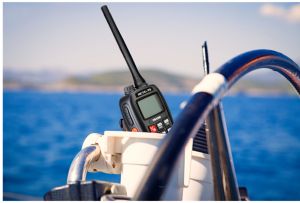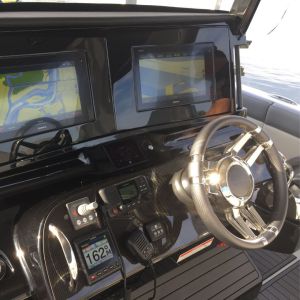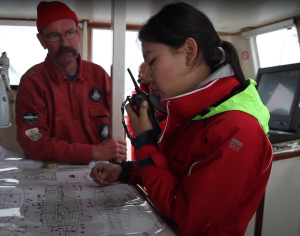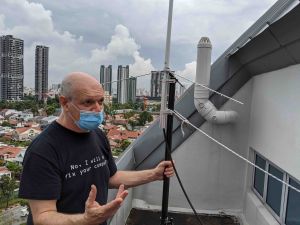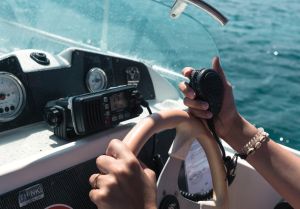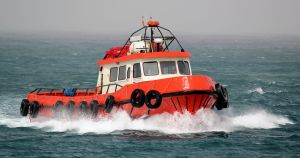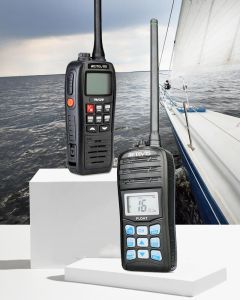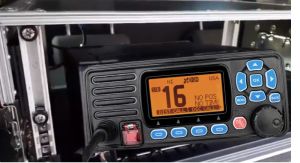Category Archives :Maritime knowledge
VHF Marine Radio Legal Requirement
- Dec 02,2021
- Leeric
- 0 Comments
- Maritime knowledge
Each country has its own regulatory authority, here in the UK it is the responsibility of the Maritime Coastguard Agency (MCA) and OFCOM. These notes are for UK registered ships and are only meant as a guide. Non UK registered ships should check with the country of registration. ...
VHF marine radio is suited to some boating activities than others
- Nov 25,2021
- Leeric
- 0 Comments
- Maritime knowledge
VHF radio is also better suited to some boating activities than others. Making a call by handheld VHF radio for your boating activity. Always have a handheld, waterproof VHF radio on your person, preferably attached to your lifejacket. Also carry a registered emergency locator beacon, particularly when venturing any significant distance off the coast. Locator beacons work both at sea and on inland waterways. An EPIRB is preferred, but a PLB is a useful alternative. ...
You are in trouble in the sea, you need rescue
- Nov 25,2021
- Leeric
- 0 Comments
- Maritime knowledge
A VHF radio is your best two-way communication device at sea. With a VHF radio, calls can be received by Maritime Coastguard and by vessels which may be in position to give immediate assistance. A VHF marine radio also helps ensure that storm warnings and other urgent marine information broadcasts are received. ...
Marine VHF radio for leisure sailors
- Nov 18,2021
- Leeric
- 0 Comments
- Maritime knowledge
There are many ways to communicate with others at sea ranging from signal flags to satellite phones. While it is not a legal requirement in most countries, leisure sailors are strongly encouraged to use a VHF DSC (Digital Selective Calling) Radio as their primary means of communication, since this is used by the rescue authorities and commercial shipping. ...
VHF marine repeater
- Nov 11,2021
- Leeric
- 0 Comments
- Maritime knowledge
VHF communication range depends mainly on the height of the antennas of the transmitting and receiving stations. By using VHF marine repeater stations, the range of ship to ship, ship to shore and shore to ship communications can be significantly increased. VHF marine repeaters are unmanned shore installations usually located at geographically high points. They are designed to transmit and receive simultaneously and will retransmit, or ‘repeat’ all signals received. ...
Making a distress call
- Nov 11,2021
- Leeric
- 0 Comments
- Maritime knowledge
The distress call Mayday may be used only if the boat is threatened by grave and imminent danger – for example, sinking or on fire – and immediate assistance is required. This distress call has absolute priority over all other transmissions and may be transmitted only on the authority of the skipper or the person responsible for the safety of your vessel. ...
Calling for help devices
- Nov 04,2021
- Leeric
- 0 Comments
- Maritime knowledge
There are a number of different products that can be used to call for help. With all activities we strongly encourage you to take a means of calling for help that is most suitable to your activity. We advise that you know how to use it, and keep it within reach at all times. ...
Water safety and advice
- Nov 04,2021
- Leeric
- 0 Comments
- Maritime knowledge
The coast is an exciting place to be – but it’s easier than you think to get into trouble in the water. Stay safe with our essential safety advice. Whether you're heading to the beach, to the coast, or out to sea, we've collected together our essential safety advice so you can make the most of your time on the water ...
If you sail on European inland waterways, ATIS is need
- Oct 12,2021
- Leeric
- 0 Comments
- Maritime knowledge
If you sail on European inland waterways, you need ATIS number. If you are sailing to Europe it may be appropriate to consider purchasing a VHF marine radio, as all European countries will recognize this. ATIS stands for automatic transmitter identification system, not to be confused with AIS. ATIS system is used on inland waterways in Europe. Every transmission of VHF radio sends out a unique FFSK data signal ...
Push button distress calling
- Oct 07,2021
- Leeric
- 0 Comments
- Maritime knowledge
Digital Selective Calling—DSC—is one of those features that, despite having been standard on every fixed-mount VHF for more than a decade, is little understood and little used by recreational sailors. One reason is perhaps that it requires two devices to be wired together—a process that requires some head-scratching if the two are from different manufacturers. Another might be that DSC requires you to obtain a Marine Mobile Service Identity (MMSI) number that must be programmed into the radio. ...

